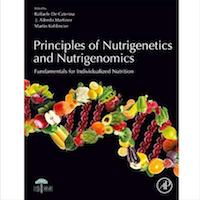Microbiome and Nutrition
The complex community of bacteria, yeasts and viruses living in our intestines, collectively known as the gut microbiome, is shaped, in part, by what we eat. Genetics, environment, and other factors also influence an individual’s microbial community. Research at the NRI investigates these complex relationships and their impact on disease risk. We use animal models and bioinformatics to study the associations between nutritional metabolites, gut microbiome, and health. What happens in the gut doesn’t stay in the gut. Your microbiome can play a role in cardiovascular disease, obesity and diabetes, and even cancer. Our team envisions a future where analysis of your microbiome can determine disease risk, and medical foods can be prescribed to treat and prevent disease by regulating the microbiome.
Publications
Microbiome and Nutrition Publications
2020
Population studies of TMAO and its precursors may help elucidate mechanisms. Meyer K
2019
Association of dietary patterns with the gut microbiota in older, community-dwelling men. Meyer K
2018
Meta-analysis of human genome-microbiome association studies: the MiBioGen consortium initiative. Meyer K
Human microbiota, blood group antigens, and disease. Sumner S
2017
Trimethylamine N-Oxide, the Microbiome, and Heart and Kidney Disease. Zeisel S
2016
Diet and Gut Microbial Function in Metabolic and Cardiovascular Disease Risk. Meyer K
Antibiotic-mediated gut microbiome perturbation accelerates development of type 1 diabetes in mice. Sumner S
Related News
Kohlmeier Co-edits Nutrigenetics and Nutrigenomics Textbook
August 20, 2019 – Principles of Nutrigenetics and Nutrigenomics: Fundamentals for Individualized Nutrition is the most comprehensive foundational text on the complex topics of nutrigenetics and nutrigenomics. Edited by three leaders in the field with contributions from the most well-cited researchers conducting groundbreaking research in the field, the book covers how the genetic makeup influences the response to foods and nutrients and how nutrients affect gene expression.
One Size Won’t Fit All
August 20, 2019 – Nearly 35 percent of Americans are considered obese — a diagnosis that has become so common the American Medical Association recognizes it as a chronic disease. While the diagnosis is the same for all, the treatments vary; what works for one person typically doesn’t work for another. In response, researchers from across UNC have joined forces to tackle this ever-growing problem.
August 2019
Startup SNP Therapeutics Merges Gene Testing With Personalized Nutrition July 15 2019 – In what may be the ultimate affirmation of “you are what you eat,” an innovative Charlotte-area company is merging high-tech genomic testing with personalized nutritional...
Hops Study
Study Purpose: To evaluate the effects of hops, a naturally occurring product, in the regulation of blood sugars. Recruiting: 18-70 year old males and females who do not smoke and are generally in good health What participants will do: Participants will volunteer for...
Meeting Areas & Office Space
The NRI building was designed with collaboration, collegiality and productivity in mind. Meeting areas and office space adjoin or connect the different clinical and laboratory research areas throughout the building. In addition to the 32,500 square feet of wet space...
On-campus Resources
The NRI’s location on the NCRC puts our scientists only footsteps away from the David H. Murdock Research Institute (DHMRI) which offers some of the best biotechnology equipment available, including a molecular genomics laboratory, a metabolomics laboratory, a 950 MHz...



